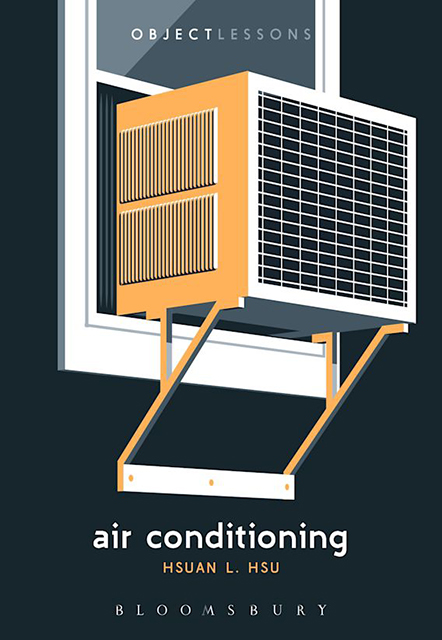

As a first-generation American growing up in Orange County, California, Hsuan Hsu didn’t always understand his parents’ relationship with the air conditioner. Even as temperatures got well into the 90s, the unit stayed quiet. At friends’ houses, though, putting up with the heat seemed “unthinkable.”
This disconnect never left Hsu’s mind. In American culture, it seems there have always been feuds over who gets to control the thermostat and whose comfort is prioritized at home, in the office and even across our society.
“I’ve been thinking about — and living in — extreme heat more and more, as have we all in Central California,” said Hsu, a professor of English at UC Davis.
“I just got really interested in trying to learn more about this every day, really unnoticed technology. Its whole role, if it’s working well, is to be unnoticeable,” Hsu said. “But it’s quietly pumping cool air into interiors while pumping heat and carbon emissions into exterior spaces.”
In his most recent book, Air Conditioning (Bloomsbury, 2024), Hsu explores the origin of air conditioning and U.S. dependence on the technology, as well as the consequences of it on the environment, public health and society. He also grapples with when and how air conditioning becomes a need — or even a human right — and when it is a luxury.
Poor planning or planned injustice?

Hsu ties the history of air conditioning and current day disparities to colonialism and the history of racial violence: who has access to air conditioning, cool drinking fountains, public swimming pools and beaches.
“There are continuities between that and ways of torture using heat and air conditioning that have been happening in migrant detention centers, as well as in prisons,” Hsu said.
Every year in the U.S., we see people die from illnesses related to heat, especially those who might be low-income, housing insecure, or who work outdoors or have health conditions that make them more vulnerable. Yet, simultaneously, air conditioners run constantly to keep computers, data centers, books, archives and art collections safe from the elements.
According to Hsu, it isn’t just about whether or not we have access to air conditioners (or if we can afford the accompanying electricity bill). Over time and due to climate change in tandem with our built environment, we’ve become more reliant on air-conditioning and less interested in cooling by other means.
“Some scholars have been thinking about air conditioning as a technology of climate denial – even if we believe in climate change, it allows our bodies to deny feeling its effects,” Hsu added.
“Air conditioning made a lot of these things seem unnecessary,” Hsu said. Or, at least, it made us believe they were unnecessary. This includes architectural interventions and seemingly simple building decisions like window placement and thickness — and whether or not a window can be opened.

There are good reasons to look to the past for solutions rather than solely relying on new technologies.
For example, throughout history, siestas, the practice of napping during the hottest part of the day, were a common way for people to cope with the heat. But even this strategy has faced criticism in the name of “modernity,” according to Hsu.
Despite air conditioning’s emissions and issues of access, Hsu is not anti-air conditioning. Instead, he is recontextualizing it, challenging readers to think about it and its implications differently. He also challenges us to notice.
“The book has made me more attuned to temperature,” he said. “What is the temperature in a room I’m in? What is the humidity like?” He thinks about how these things affect people’s, including his own, moods, behaviors and energy levels.
The Bloomsbury series, Object Lessons, is a public scholarship project focused on the “hidden lives of ordinary things.” It is co-edited by UC Davis alum Christopher Schaberg. Hsu’s contribution, Air Conditioning, was published in February.
